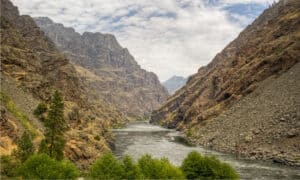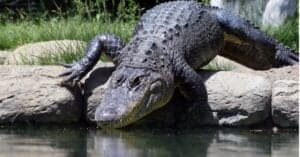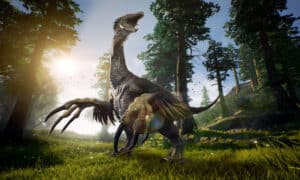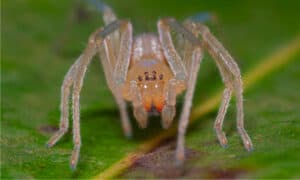The Top 10 Deadliest Animals in the World
@media (min-width: 481px) {
.mobile-top-content {
display: none;
}
}
#mobileTopContentCTACarouselControls { overflow: hidden; text-overflow: ellipsis; white-space: nowrap; }
.mobile-top-content .more { color: #fff; }
.mobile-top-content a { color: #fff; text-decoration: underline; }
.mobile-top-content a:hover { color: #fff; text-decoration: underline; }
@media (max-width: 480px) {
.mobile-top-content {
background-color: #06a10b;
color: #fff;
text-align: center;
/*height: 60px;
padding-top:5px;*/
font-size:80%;
/* display: block; */
margin: 0px -30px;
}
}
Animals are all around us. Because of their close proximity, many people take for granted how truly dangerous some of the animals that are right within our communities really are. In this article, we’ll discuss the 10 deadliest animals in the world ranked by the number of deaths that they are responsible for with some adjustments made for aggression, percentage of fatal attacks, and other similar factors. These are the 10 deadliest animals in the world.
#10. Sharks
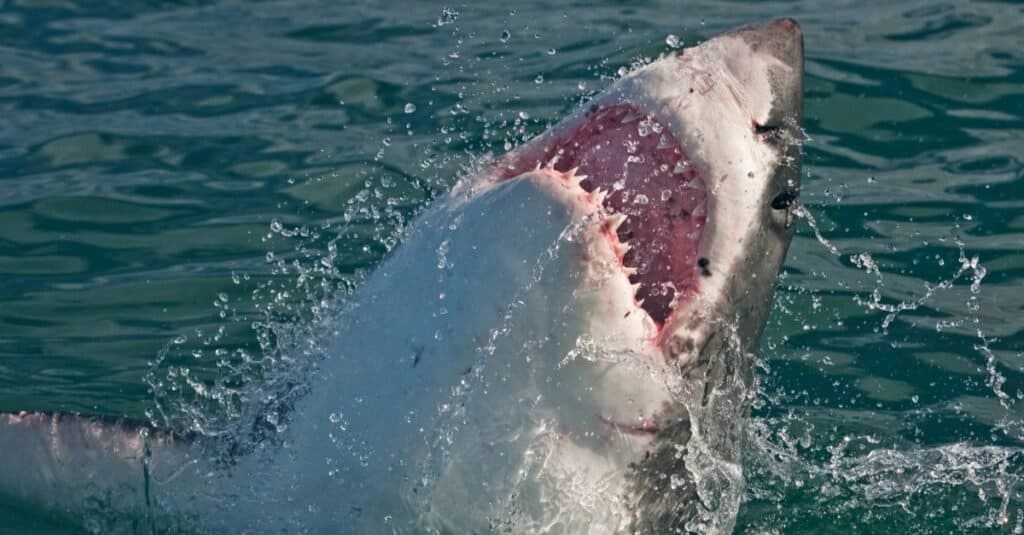
While sharks are commonly portrayed in movies and television shows as deadly killers, the reality is much different. Worldwide, sharks account for only several hundred attacks on humans, and they only average six to seven human deaths per year. In the United States, sharks cause about one death every two years. The species responsible for the highest percentages of fatal attacks are the great white shark, the bull shark, and the tiger shark.
#9. Elephants
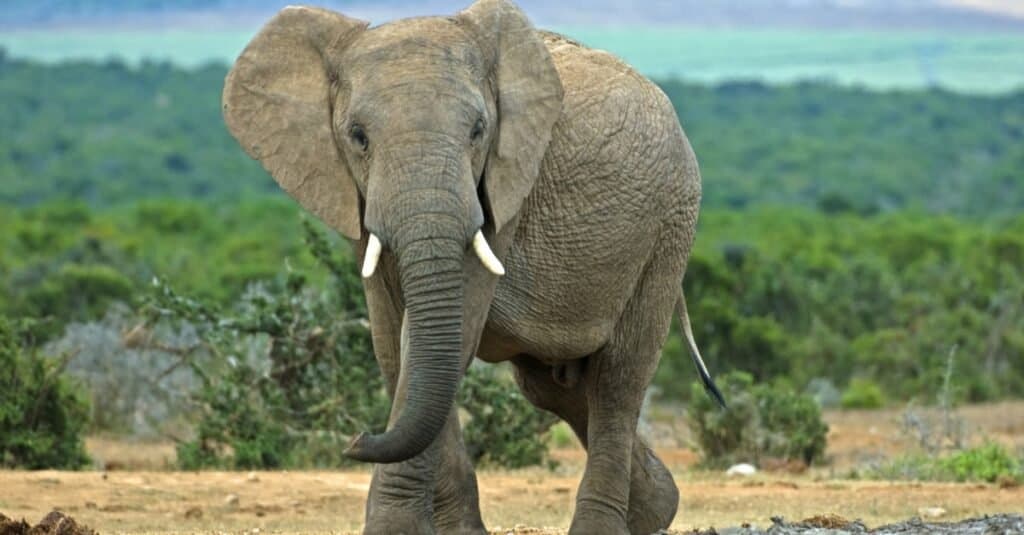
Peter Betts/Shutterstock.com
We normally think of elephants as smart, friendly creatures, and they have been a staple of circus performances for many years. The reason they perform so well is because of their intelligence and their complex emotions and social structures, but their status as the largest land animal means that they have an immense amount of weight and the associated power that comes along with it.
Elephants in captivity are capable of anger and retaliation, and those in the wild can be territorial and protective of their family members. An average of 500 people per year are killed during encounters with elephants by being trampled, thrown, crushed, and other similarly unpleasant means.
#8. Hippopotamuses
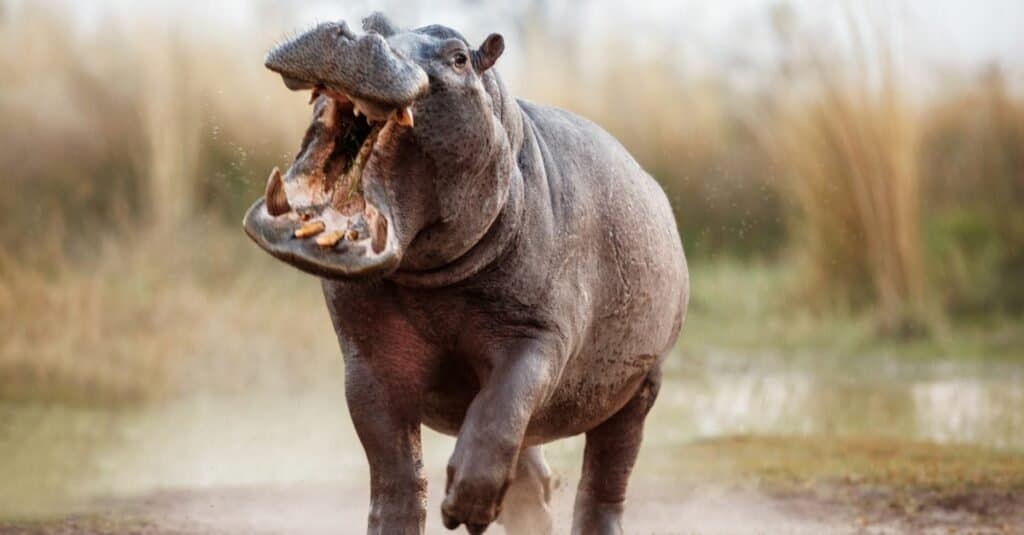
PhotocechCZ/Shutterstock.com
The hippopotamus ranks third in size amongst the largest land mammals behind the elephant and the rhinoceros, and they are responsible for about 500 fatal human encounters each year just like the last entry on our list. However, they earned a higher spot due to their reputation for violence, aggression, and their extremely territorial nature.
Hippos have even been known to attack boats for encroaching upon their habitat, and they can use their sharp teeth that grow up to 20 inches long very effectively. They attack by biting, trampling, and will hold their adversary underwater until they drown.
#7. Tsetse flies
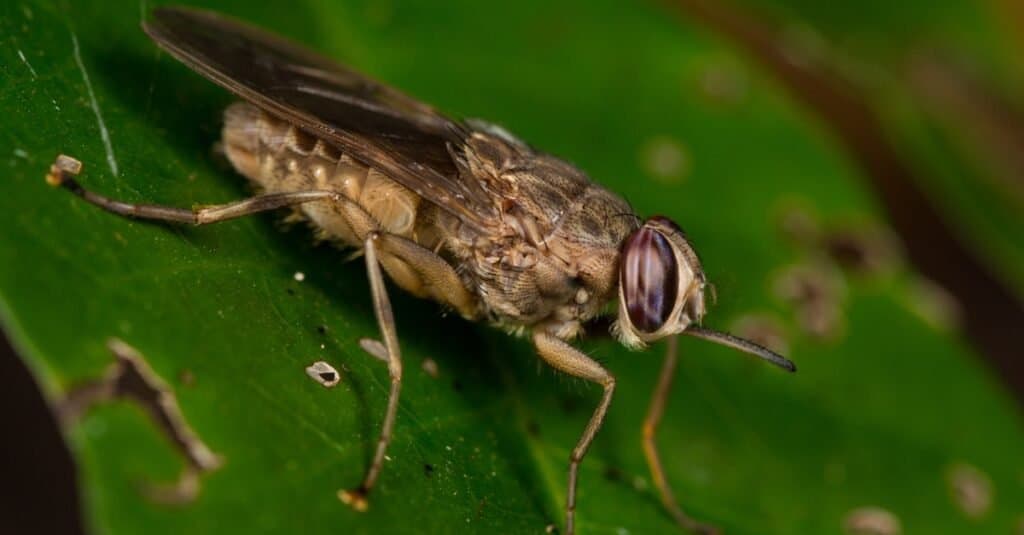
Jaco Visser/Shutterstock.com
The tsetse fly is the first of several insects to make our list of the 10 deadliest animals in the world. As is the case for the bugs to come, it is not the actual bite of the tsetse fly that kills humans but the resulting infection that proves fatal. The tsetse fly resides in the tropical regions of Africa, and their bite infects the host with a parasite that causes African sleeping sickness.
African sleeping sickness is a very difficult disease to treat especially given the lack of medical resources in the area, but without treatment, the disease is fatal without exception. Due to the remoteness of the region and lack of verified information, mortality estimates range as high as 500,000 but more reliable sources indicate that around 10,000 people die each year after being bitten by the tsetse fly.
#6. Kissing Bugs
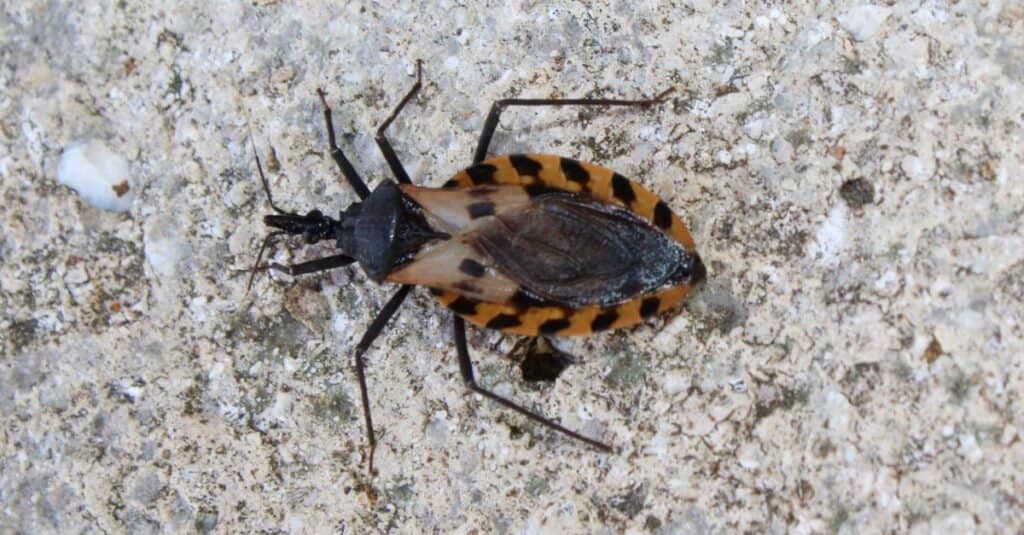
Vanessa Becker-Miller/Shutterstock.com
Assassin bug is the collective name used to refer to over 150 species of insects that possess a specific type of curved proboscis. This proboscis is used as a tool, for defense, and also to hunt, and the propensity of these species to target the soft tissue regions around the mouths of humans is what earned them their more commonly known name of kissing bug.
Found throughout the world, most kissing bugs are no threat to humans besides an abnormally painful bite; however, several species that inhabit Central and South America transmit a dangerous disease called Chagas disease. Even without treatment, mortality rates are low from Chagas disease, but the widespread nature of the parasitic infection means that even the five percent death rate causes between 12,000-15,000 deaths per year from organ failure resulting from the parasitic infection.
#5. Crocodiles
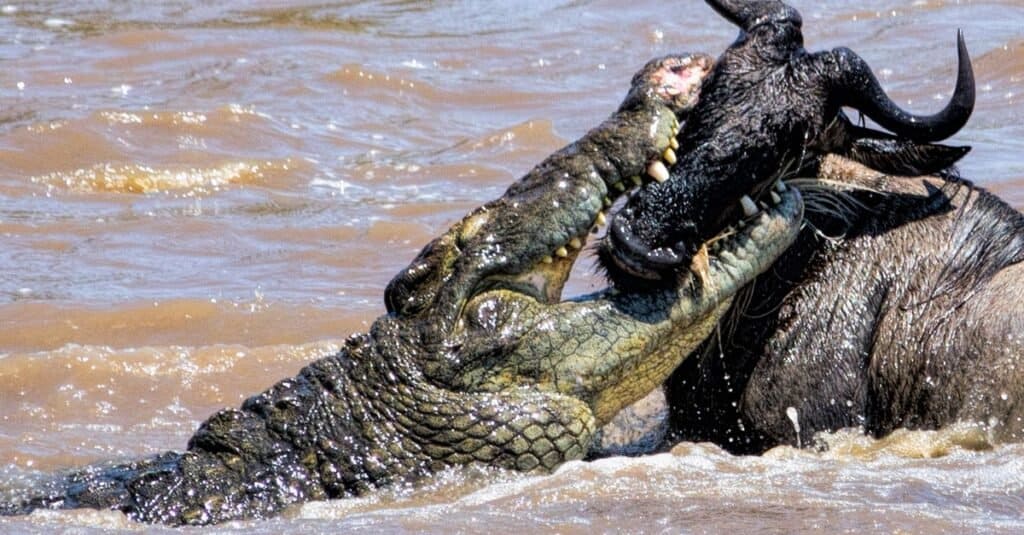
The next apex predator entry on our list of the deadliest animals in the world is the crocodile. Responsible for somewhere between 1,000-5,000 deaths annually, the crocodile is one of the largest, most aggressive, and most dangerous animals in the world. Weighing in at over 2,000 pounds, crocodiles possess immense bite strength and can travel at speeds up to 25 mph.
Crocodiles are the sole entry on this list that actively hunt and prey upon humans. The deadliest species is the Nile crocodile which lives in the regions surrounding the Nile river, and they were so feared by ancient Egyptians that they carried tokens of their crocodile god for protection from the reptiles.
#4. Freshwater Snails
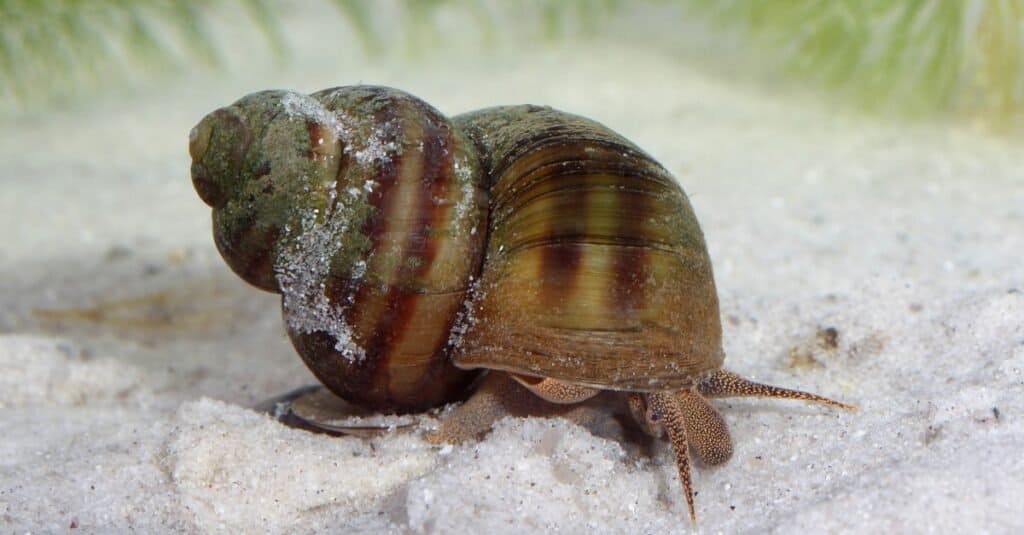
Vitalii Hulai/Shutterstock.com
Surprisingly enough, the next deadliest animal on our ranking is none other than the freshwater snail. Much like the other less overtly threatening species that we have mentioned, it is not the snail that directly kills humans but the disease that they transmit. According to World Health Organization estimates, several million people are diagnosed with a parasitic infection called schistosomiasis every year and somewhere between 20,000 and 200,000 of those cases are fatal.
Schistosomiasis causes severe abdominal pain and blood in the urine of the infected, but it is not generally fatal outside of developing countries. The wide range in possible deaths is the result of spotty governmental reporting and the lack of medical care in these remote areas and underdeveloped nations.
#3. Dogs/Wolves
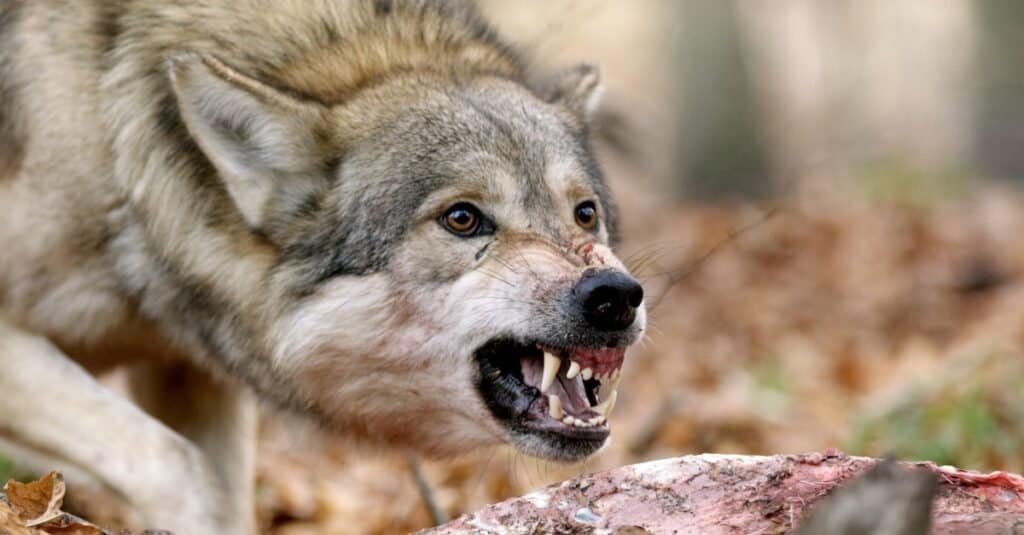
Peter Ivanyi/Shutterstock.com
Man’s best friend is also one of our deadliest threats. Directly fatal dog and wolf encounters are exceedingly rare in comparison to the number of deaths resulting from canine transmitted rabies infections. We are several hundred years removed from when wolf packs actively hunted humans in India causing over 200 deaths per year in the 18th and 19th centuries, but 40,000-50,000 deaths annually are caused by the rabies virus alone. Again, the vast majority of those deaths take place outside of first-world countries and are the result of a lack of advanced medical care. Rabies transmission from wolf species is much lower than those from dogs, but they are not zero.
#2. Snakes
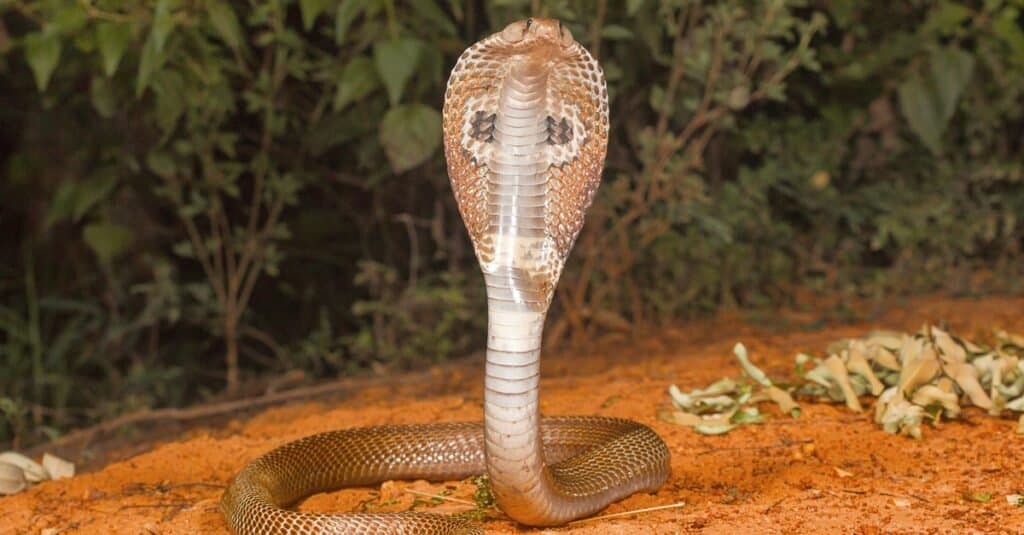
RealityImages/Shutterstock.com
It turns out that the fear of snakes or ophidiophobia may not be so unreasonable after all. Snakes account for over 100,000 fatalities a year based on conservative estimates. A worldwide shortage of antivenin as well as the remote locations inhabited by some of the most venomous snake species all contribute to this high death toll.
While many people fear large snakes like boa constrictors and anacondas, the snake responsible for the most deaths is actually the saw-scaled viper which only measures up to three feet long! Also called the carpet viper, this snake resides in Africa, the Middle East, and India, and the females of the species are more than twice as venomous as the males. Aside from the high death rate, the carpet viper’s venom is a neurotoxin that causes an extremely high number of amputations in those victims that it doesn’t kill outright.
#1. Mosquitoes
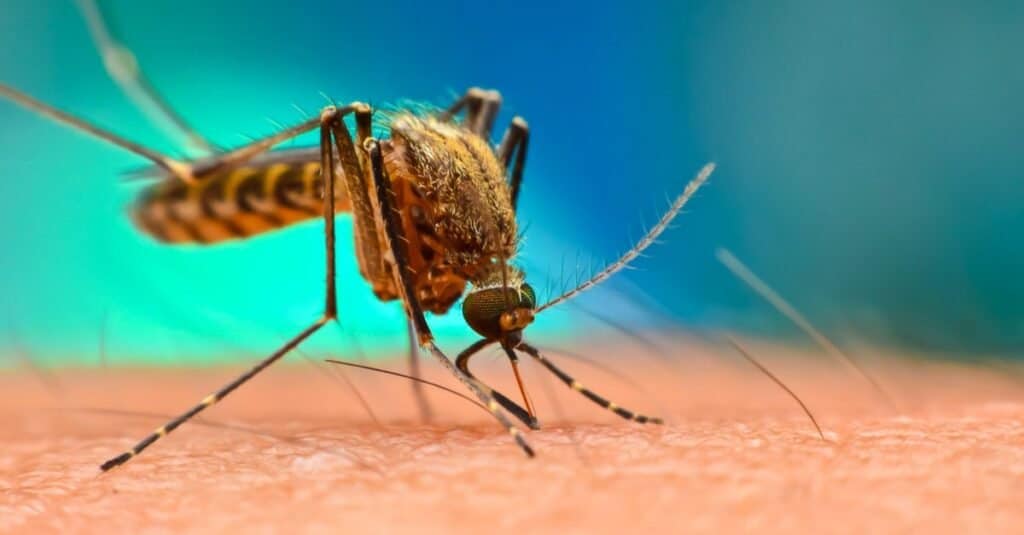
Digital Images Studio/Shutterstock.com
The mosquito is the single deadliest animal in the world and also one of the smallest. Mosquitoes are estimated to cause between 750,000 and one million human deaths per year. They are a vector for many diseases that are deadly to mankind including malaria, dengue fever, and the West Nile and Zika viruses. Malaria alone accounts for over half a million fatal infections annually.
Only the female mosquito feeds on humans with the male feeding on nectar. Some scientists have estimated that potentially half of all human deaths since the beginning of our species may be the result of illnesses transmitted by mosquitoes. Even without such a wild historical estimate, the mosquito has solidly cemented its place at number one on our list of deadliest animals with both their aggression and the deaths of nearly one million people per year.
Thankfully, only a handful of the entries on this list are capable of direct, intentional attacks on humans, and the majority of the deaths caused by others occur in rural areas or developing countries with limited access to healthcare. This means that as quality healthcare is more widely available we can expect to see a significant decrease in mortality rates from a number of these animals. Notably absent from this list are humans themselves. On average, nearly 500,000 deaths are the result of homicide around the world. That number alone would rank the human race as the second deadliest threat on our list, and with our increasing population, that number is likely to continue to rise.
Next Up: Discover the 9 Animals That Build Things Like Humans Do
More from A-Z Animals
.more-snake-card-image { max-height:140px !important; }
@media (min-width: 481px) {
.mobile-top-content {
display: none;
}
}
#mobileTopContentCTACarouselControls { overflow: hidden; text-overflow: ellipsis; white-space: nowrap; }
.mobile-top-content .more { color: #fff; }
.mobile-top-content a { color: #fff; text-decoration: underline; }
.mobile-top-content a:hover { color: #fff; text-decoration: underline; }
@media (max-width: 480px) {
.mobile-top-content {
background-color: #06a10b;
color: #fff;
text-align: center;
/*height: 60px;
padding-top:5px;*/
font-size:80%;
/* display: block; */
margin: 0px -30px;
}
}
Animals are all around us. Because of their close proximity, many people take for granted how truly dangerous some of the animals that are right within our communities really are. In this article, we’ll discuss the 10 deadliest animals in the world ranked by the number of deaths that they are responsible for with some adjustments made for aggression, percentage of fatal attacks, and other similar factors. These are the 10 deadliest animals in the world.
#10. Sharks

While sharks are commonly portrayed in movies and television shows as deadly killers, the reality is much different. Worldwide, sharks account for only several hundred attacks on humans, and they only average six to seven human deaths per year. In the United States, sharks cause about one death every two years. The species responsible for the highest percentages of fatal attacks are the great white shark, the bull shark, and the tiger shark.
#9. Elephants

Peter Betts/Shutterstock.com
We normally think of elephants as smart, friendly creatures, and they have been a staple of circus performances for many years. The reason they perform so well is because of their intelligence and their complex emotions and social structures, but their status as the largest land animal means that they have an immense amount of weight and the associated power that comes along with it.
Elephants in captivity are capable of anger and retaliation, and those in the wild can be territorial and protective of their family members. An average of 500 people per year are killed during encounters with elephants by being trampled, thrown, crushed, and other similarly unpleasant means.
#8. Hippopotamuses

PhotocechCZ/Shutterstock.com
The hippopotamus ranks third in size amongst the largest land mammals behind the elephant and the rhinoceros, and they are responsible for about 500 fatal human encounters each year just like the last entry on our list. However, they earned a higher spot due to their reputation for violence, aggression, and their extremely territorial nature.
Hippos have even been known to attack boats for encroaching upon their habitat, and they can use their sharp teeth that grow up to 20 inches long very effectively. They attack by biting, trampling, and will hold their adversary underwater until they drown.
#7. Tsetse flies

Jaco Visser/Shutterstock.com
The tsetse fly is the first of several insects to make our list of the 10 deadliest animals in the world. As is the case for the bugs to come, it is not the actual bite of the tsetse fly that kills humans but the resulting infection that proves fatal. The tsetse fly resides in the tropical regions of Africa, and their bite infects the host with a parasite that causes African sleeping sickness.
African sleeping sickness is a very difficult disease to treat especially given the lack of medical resources in the area, but without treatment, the disease is fatal without exception. Due to the remoteness of the region and lack of verified information, mortality estimates range as high as 500,000 but more reliable sources indicate that around 10,000 people die each year after being bitten by the tsetse fly.
#6. Kissing Bugs

Vanessa Becker-Miller/Shutterstock.com
Assassin bug is the collective name used to refer to over 150 species of insects that possess a specific type of curved proboscis. This proboscis is used as a tool, for defense, and also to hunt, and the propensity of these species to target the soft tissue regions around the mouths of humans is what earned them their more commonly known name of kissing bug.
Found throughout the world, most kissing bugs are no threat to humans besides an abnormally painful bite; however, several species that inhabit Central and South America transmit a dangerous disease called Chagas disease. Even without treatment, mortality rates are low from Chagas disease, but the widespread nature of the parasitic infection means that even the five percent death rate causes between 12,000-15,000 deaths per year from organ failure resulting from the parasitic infection.
#5. Crocodiles

The next apex predator entry on our list of the deadliest animals in the world is the crocodile. Responsible for somewhere between 1,000-5,000 deaths annually, the crocodile is one of the largest, most aggressive, and most dangerous animals in the world. Weighing in at over 2,000 pounds, crocodiles possess immense bite strength and can travel at speeds up to 25 mph.
Crocodiles are the sole entry on this list that actively hunt and prey upon humans. The deadliest species is the Nile crocodile which lives in the regions surrounding the Nile river, and they were so feared by ancient Egyptians that they carried tokens of their crocodile god for protection from the reptiles.
#4. Freshwater Snails

Vitalii Hulai/Shutterstock.com
Surprisingly enough, the next deadliest animal on our ranking is none other than the freshwater snail. Much like the other less overtly threatening species that we have mentioned, it is not the snail that directly kills humans but the disease that they transmit. According to World Health Organization estimates, several million people are diagnosed with a parasitic infection called schistosomiasis every year and somewhere between 20,000 and 200,000 of those cases are fatal.
Schistosomiasis causes severe abdominal pain and blood in the urine of the infected, but it is not generally fatal outside of developing countries. The wide range in possible deaths is the result of spotty governmental reporting and the lack of medical care in these remote areas and underdeveloped nations.
#3. Dogs/Wolves

Peter Ivanyi/Shutterstock.com
Man’s best friend is also one of our deadliest threats. Directly fatal dog and wolf encounters are exceedingly rare in comparison to the number of deaths resulting from canine transmitted rabies infections. We are several hundred years removed from when wolf packs actively hunted humans in India causing over 200 deaths per year in the 18th and 19th centuries, but 40,000-50,000 deaths annually are caused by the rabies virus alone. Again, the vast majority of those deaths take place outside of first-world countries and are the result of a lack of advanced medical care. Rabies transmission from wolf species is much lower than those from dogs, but they are not zero.
#2. Snakes

RealityImages/Shutterstock.com
It turns out that the fear of snakes or ophidiophobia may not be so unreasonable after all. Snakes account for over 100,000 fatalities a year based on conservative estimates. A worldwide shortage of antivenin as well as the remote locations inhabited by some of the most venomous snake species all contribute to this high death toll.
While many people fear large snakes like boa constrictors and anacondas, the snake responsible for the most deaths is actually the saw-scaled viper which only measures up to three feet long! Also called the carpet viper, this snake resides in Africa, the Middle East, and India, and the females of the species are more than twice as venomous as the males. Aside from the high death rate, the carpet viper’s venom is a neurotoxin that causes an extremely high number of amputations in those victims that it doesn’t kill outright.
#1. Mosquitoes

Digital Images Studio/Shutterstock.com
The mosquito is the single deadliest animal in the world and also one of the smallest. Mosquitoes are estimated to cause between 750,000 and one million human deaths per year. They are a vector for many diseases that are deadly to mankind including malaria, dengue fever, and the West Nile and Zika viruses. Malaria alone accounts for over half a million fatal infections annually.
Only the female mosquito feeds on humans with the male feeding on nectar. Some scientists have estimated that potentially half of all human deaths since the beginning of our species may be the result of illnesses transmitted by mosquitoes. Even without such a wild historical estimate, the mosquito has solidly cemented its place at number one on our list of deadliest animals with both their aggression and the deaths of nearly one million people per year.
Thankfully, only a handful of the entries on this list are capable of direct, intentional attacks on humans, and the majority of the deaths caused by others occur in rural areas or developing countries with limited access to healthcare. This means that as quality healthcare is more widely available we can expect to see a significant decrease in mortality rates from a number of these animals. Notably absent from this list are humans themselves. On average, nearly 500,000 deaths are the result of homicide around the world. That number alone would rank the human race as the second deadliest threat on our list, and with our increasing population, that number is likely to continue to rise.
Next Up: Discover the 9 Animals That Build Things Like Humans Do

